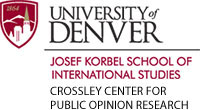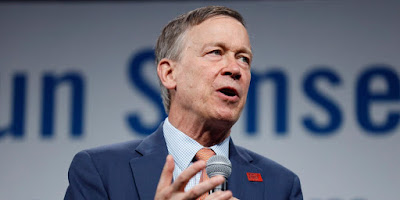Many Friends of the Crossley Center have requested the videos of the election Zoom programs held this October. They are now ready for viewing. Join Professor Ciruli as he hosts Election Central programs.
Forecasting and Who Wins the Presidency and Senate – October 13
Jessica Taylor, an editor of the Cook Political Report, one of the most followed forecasting publications, described the Cook Political Report’s latest presidential and U.S. Senate predictions, including Colorado. WATCH VIDEO
Election Night 2020: Long Night, Long Count – October 16
A panel of media and election experts on what the election night will look like in Colorado and across the country. The panel:
- Tim Ryan, veteran 9KUSA Assistant News Director and now Director of Content
- Shaun Boyd, CBS4 political reporter
- John Frank, political reporter, Colorado Sun and formerly Denver Post
- Amber McReynolds, former head of Denver Elections Department and now CEO of National Vote at Home Institute
WATCH VIDEO
Colorado Political Experts: Two Weeks Out – October 21
A panel of top political, policy and media experts discussed the competitive races in Colorado: presidential, senate and congressional, legislature and ballot issues. The panel:
- Dick Wadhams, former Republican Chair, consultant, CBS4 commentator and Denver Post columnist
- Sheila MacDonald, veteran consultant to leading Democratic campaigns and numerous local and statewide ballot issues
- Joey Bunch, editor, senior writer, columnist for Colorado Politics and the new Denver Gazette
WATCH VIDEO
The U.S. and China in the 2020 Election – A New Cold War? – Sept. 30
Will the next administration inherit a new Cold War regardless of who wins? Professors Floyd Ciruli and Suisheng “Sam” Zhao discussed the issues. WATCH VIDEO
Election Central: Pre-Labor Day Update – Sept. 1
Join Professor Floyd Ciruli in a pre-Labor Day review of the major issues, such as the pandemic, race relations and the economy, and the position of the campaigns and the major questions related to polls and forecasts. WATCH VIDEO
Podcast: Political Polls: Can We Trust Them?
For those of you who want to know more about what happened with the 2016 presidential polls and if it could happen again, tune into a DU RadioEd podcast on the subject. LISTEN HERE














































